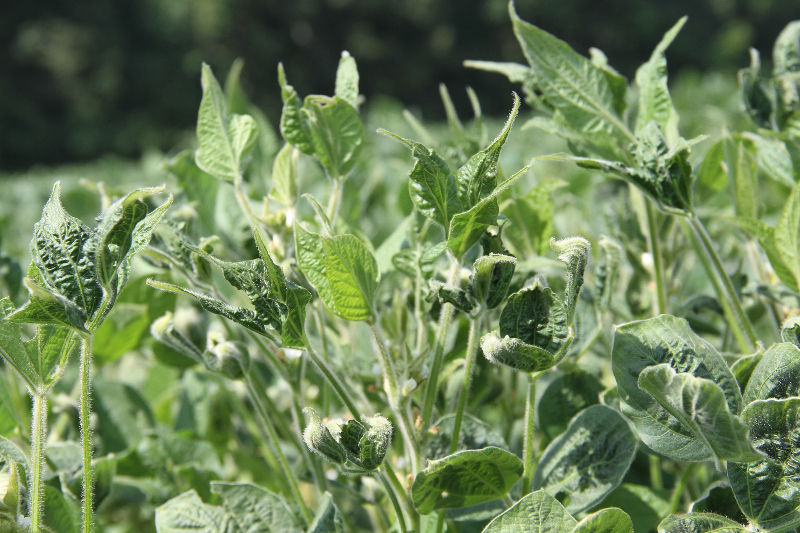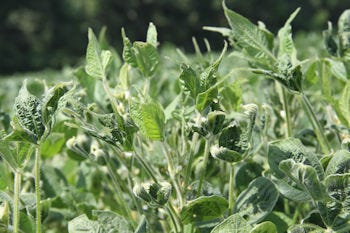August 18, 2016

When the general media talk about agriculture we want them to focus on how we produce food, conserve resources and maximize every acre for crops and livestock. We don't want them thinking we're "poisoning" fields, yet I'm afraid that may be the message folks are getting thanks to the dicamba controversy unfolding in the Bootheel of Missouri and farther south.

These curled leaves are an unwelcome site to farmers who found their neighbors illegally used dicamba on new-tech crops. This is turning into a multi-state problem
You can argue whether Monsanto should have sold Roundup Ready 2 Xtend soybeans and cotton into the market with the proviso that no dicamba be applied; was the temptation too great? Farmers have tough weeds to control in those areas, what's a little dicamba among friends right? Well not so fast. Monsanto was clear that no one should use dicamba on that tech, even though it had the genes to be safe from an application. That's because the new, lower volatile, formulations - whether from Monsanto, DuPont or BASF - have not been approved for spraying over the top of the crop.
We're responsible adults right? We're here to steward the technology. We're here to make sure that technology we have access to is used properly for the best results. What we have now - to our learned eyes - is a legal and civil situation where the only things hurt are crops and farmer pocketbooks. But is that how the consumer sees it?
My take on this kind of thing is that consumers hear "blah, blah, blah, illegal use of a herbicide, blah, blah, blah" when they listen to the radio. So while 99.99% of you out there that chose to plant the dicamba tolerant technology did the right thing, the entire industry is getting smeared by a few bad actors. Though it's hard to measure how many bad actors there are since the impact acreage count keeps rising.
We're stewards of what we've been given access to. Farmers that took it upon themselves to skip the warnings and spray dicamba (and it had to be an older, more volatile form of the herbicide since the new stuff isn't really available) brought on just what our opponents to this tech warned us about; we'd cause off-target crop damage.
Great. We're all nice guys. My colleague David Bennett at Delta Farm Press shared that farmers in some areas are complaining but won't name names. We're not in the business of calling out bad actors, and perhaps we don't want to this time. But boy, when the fines start to roll in - and Arkansas is pushing for some hefty fines - and the civil suits start piling up that'll be great publicity for us stewards of technology.
So here's the deal - we in agriculture need to put on our big boy pants and act mature - that means following ALL label directions. It means telling the story of how we're stewards of all the tools we use. And it means we need to make sure this doesn’t happen again. The anti-GMO crowd already uses enough misinformation against us, this kind of thing could cause other problems down the road.
As for you bad actors? A big ironic thank you for potentially causing problems we can't even identify yet - and well beyond a few burned soybeans or torched off-target crops. This is a self-inflicted public relations wound we didn't need. Shame on you.
The comments of this blogger are not necessarily those of Penton Agriculture.
You May Also Like




